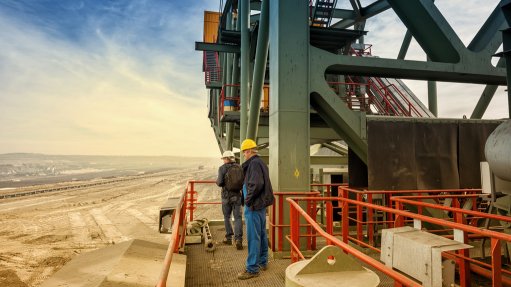
NOT GRUDGE PURCHASE There are tangible benefits in investing in a healthcare strategy
Cost containment is one of the key drivers for mining companies in the current economic climate, causing medical and healthcare services to become reactive purchases, according to medical and healthcare service provider International SOS medical director Dr Charl van Loggerenberg, who spoke to Mining Weekly while attending the Investing in African Mining Indaba, in Cape Town, in February.
Conversations with mining company representatives confirmed the trend, with mining company representatives relaying that there is a “more practical” strategic focus on workers’ current living conditions, rather than the “unforeseen” expense of healthcare, Van Loggerenberg said.
“Mining companies can, however, afford to be proactive when managing healthcare – not just responding to sick or injured staff when [these situations arise],” he said, adding that International SOS could demonstrate economic arguments proving that mining companies can earn a return on investment through intelligent investment management in healthcare services.
“Some recent studies – such as safety consultancy All Prevent’s ‘Return on Prevention’ research study, published in January 2015 – clearly show that for every $1 invested in certain healthcare strategies, there is a return of more than $1.”
The study, commissioned by International SOS, spanned six months and analysed the capital investment needed to relocate employees to an international assignment. It included the costs a company could incur should an employee not be able to complete an assignment, owing to poor health.
“The study clearly shows that there are tangible benefits in investing in a healthcare strategy. These benefits outweigh the basic operating costs of such a programme,” explained Van Loggerenberg, highlighting that, unfortunately, implementing such a programme is not a priority for mining companies.
“With companies worrying about capital items, the management of a large workforce, which is sometimes deployed to a foreign country, has shifted to providing healthcare when someone gets injured.”
Van Loggerenberg attributed this shift in focus to pressured economic environments, stating that healthcare is not a critical agenda item and it is up to healthcare companies – such as International SOS – to have a “strategic medical conversation” with mining companies.
“With competing interest for available funds, one has to have an even stronger argument for healthcare. This is quite a difficult conversation to have with a mining company whose expertise is in a different field.”
When investing in the healthcare of employees, companies are further investing in their business – employees would be more willing to work, knowing that they were being cared for, he explained.
Further, healthcare can be more practical, said Van Loggerenberg, as in many regulatory environments in different countries, there is an obligation for the employer to be proactive in the healthcare sector when employing an international and national workforce.
In some countries, such as the UK, Australia and the US, an employer is legally required to supply its workforce with reasonable healthcare and can be held liable if found noncompliant.
International SOS exhibited at this year’s Mining Indaba, where it networked with representatives from numerous projects in several countries, such as the Democratic Republic of Congo, Angola, Zambia, Tanzania and Mozambique.
International SOS has dual headquarters in Singapore and London. Its operations cover six regions, which include North and South America, Europe, Eastern Europe, the Middle East and Africa, Indonesia, Asia and Australia. All its assistance centres and remote clinics have global ISO 9001:2008 certification.